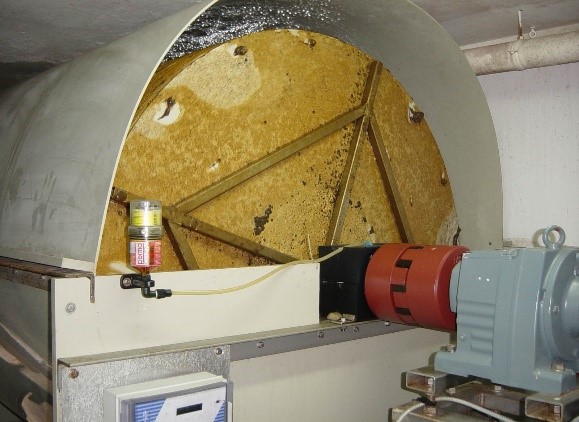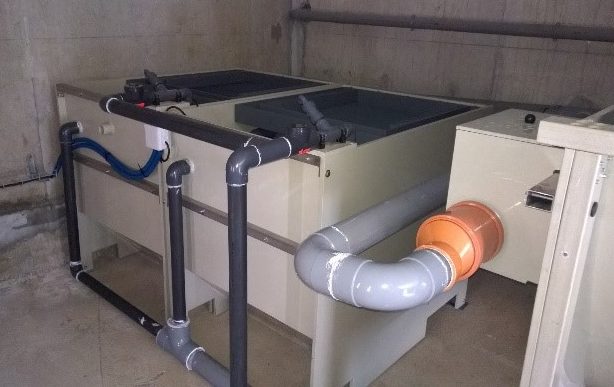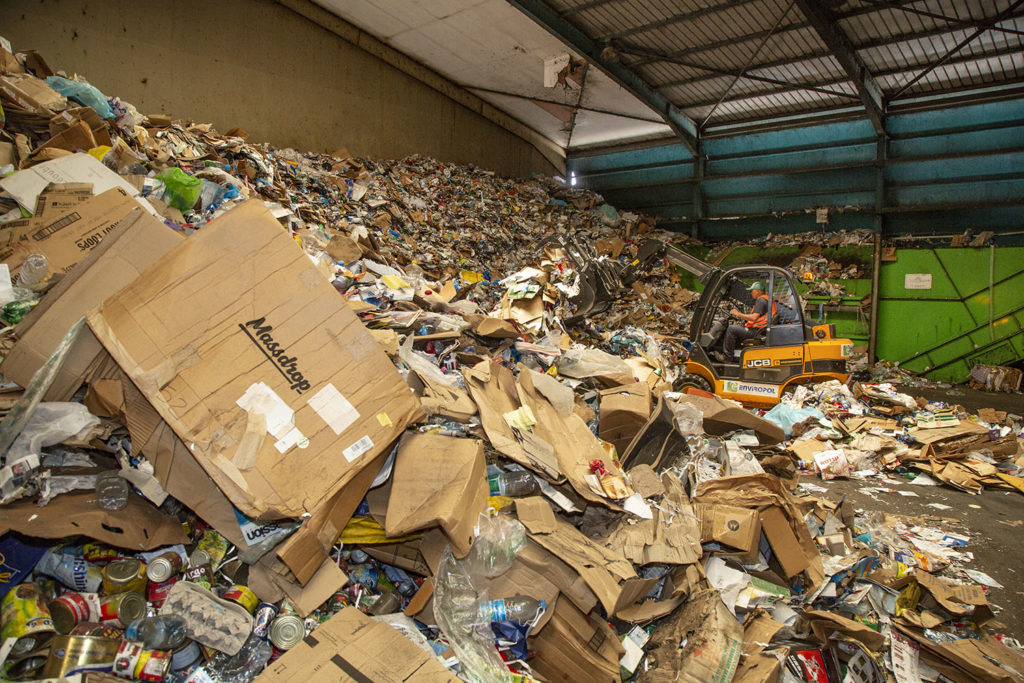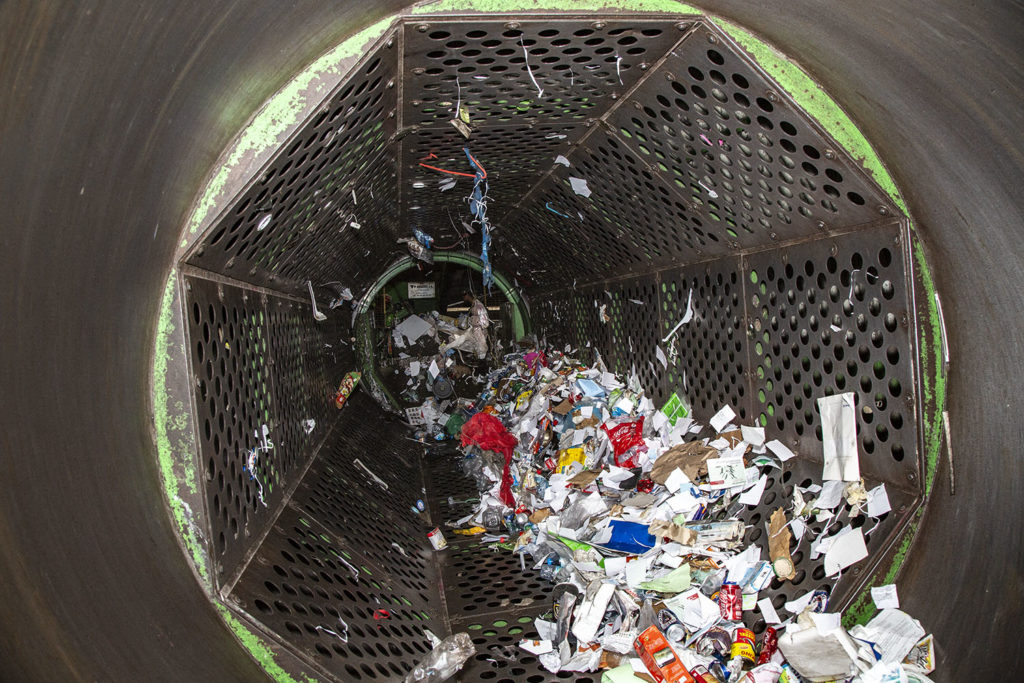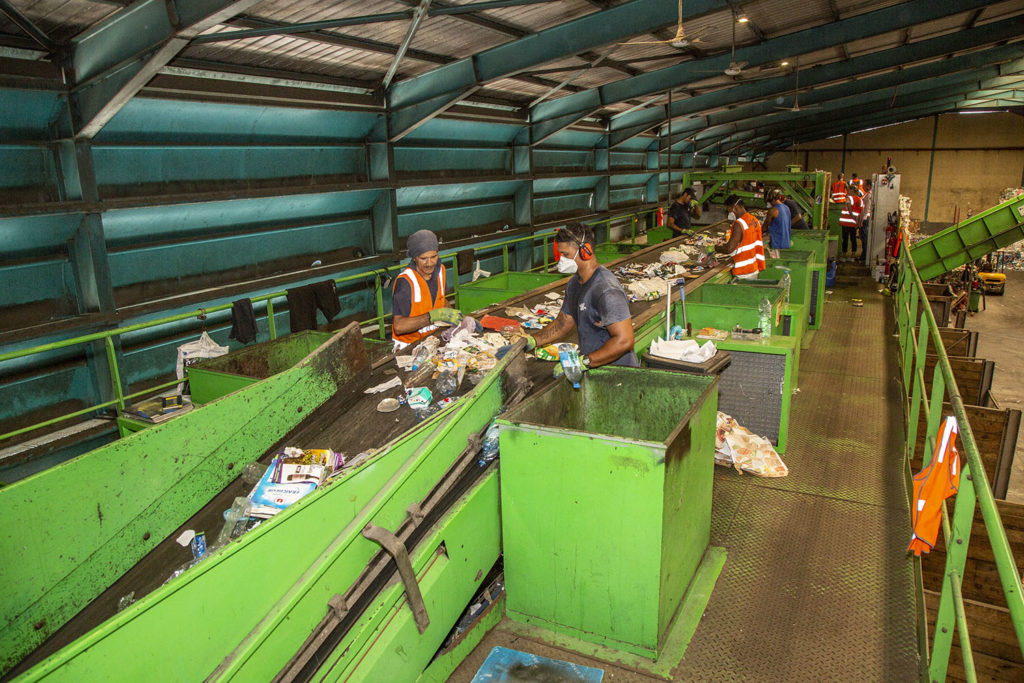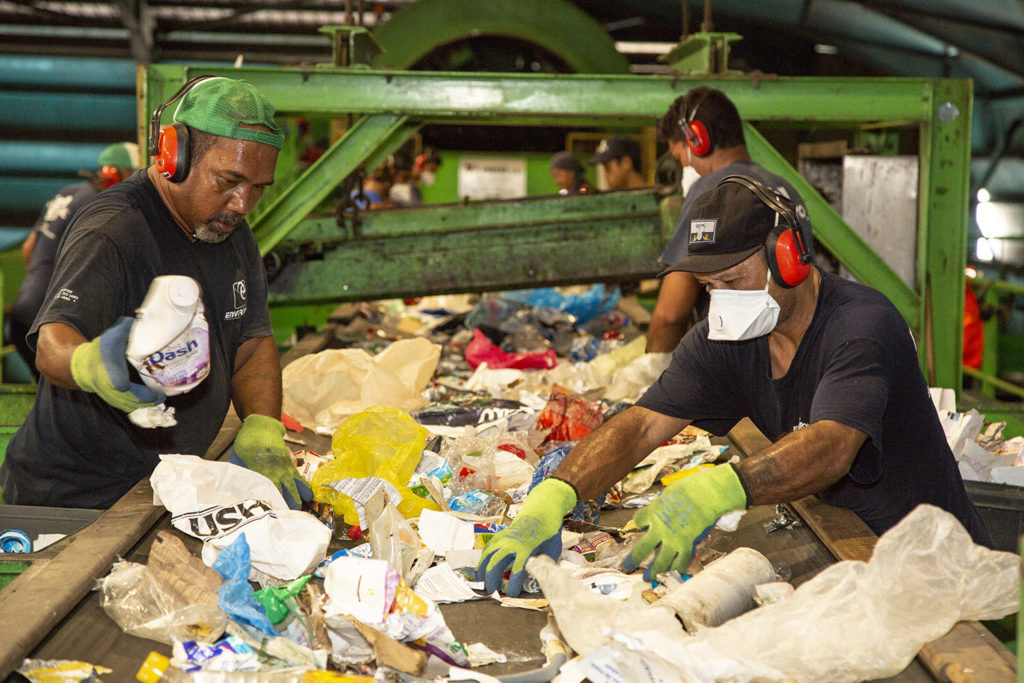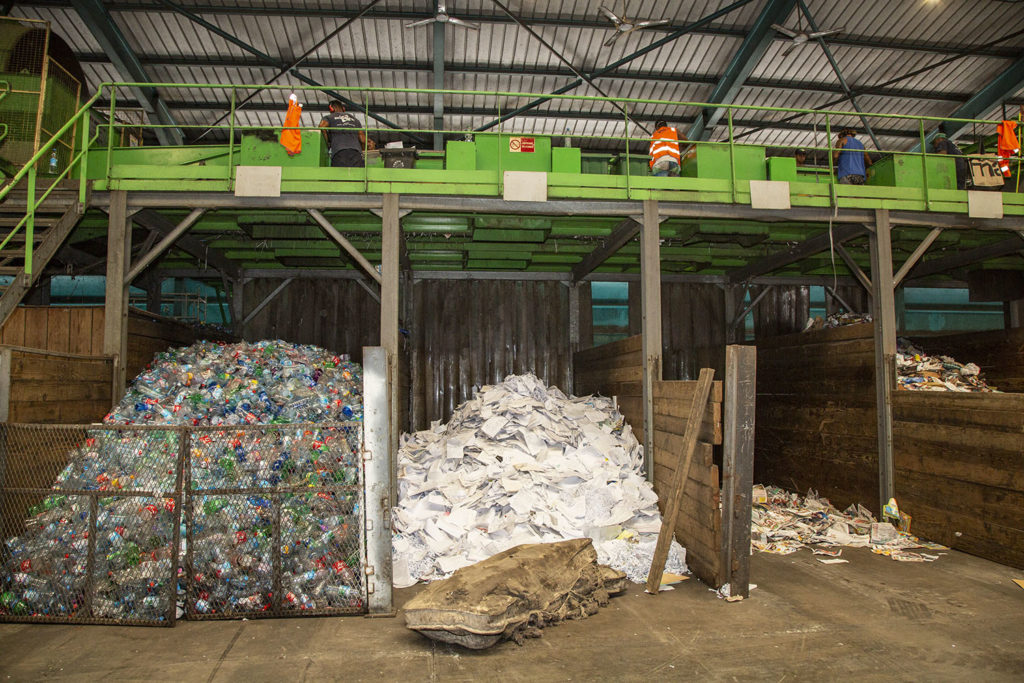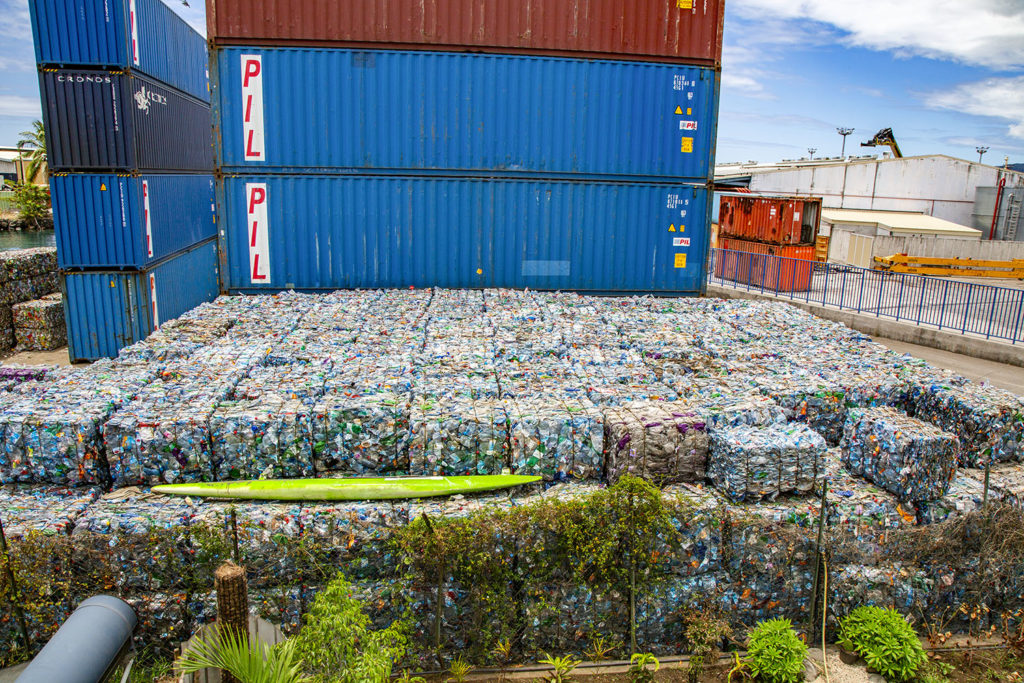I am a piece of waste in Tahiti, here is my story.
In 2017, 52,000 tonnes of taste were buried at the technical landfill centre in Paihoro. This figure has dropped considerably since a peak of 77,500 tonnes was reached in 2007. This reduction is good news, though it is not enough. Indeed, the site will reach full capacity in just a matter of years. As such, it is crucial the waste production is reduced still further. If the amount of waste for landfill has dropped, this is notably down to the fact that there has been an increase in the waste that is sorted and sent to recycling thanks to the efforts of certain municipalities in arranging the collection of waste from selective sorting and of citizens who make an effort to sort their waste in the first place.
To honour these efforts, here is the story of some of the waste processed on Polynesia’s most populated island.
Green waste… I come from the numerous gardens, which individuals cultivate with great care and which are very productive. As such, there is an abundance of me. I am deposited at the green waste centre so Aurélien’s teams at the Technival company can take care of me: I go into a crusher before being piled up and watered frequently so as not to cause too much dust and annoy the residents. My future? I am transformed into compost and reused across Tahiti or even sent to more remote islands to stimulate the growth of market garden produce. In this way, I nourish the soil and improve the quality of the end product.
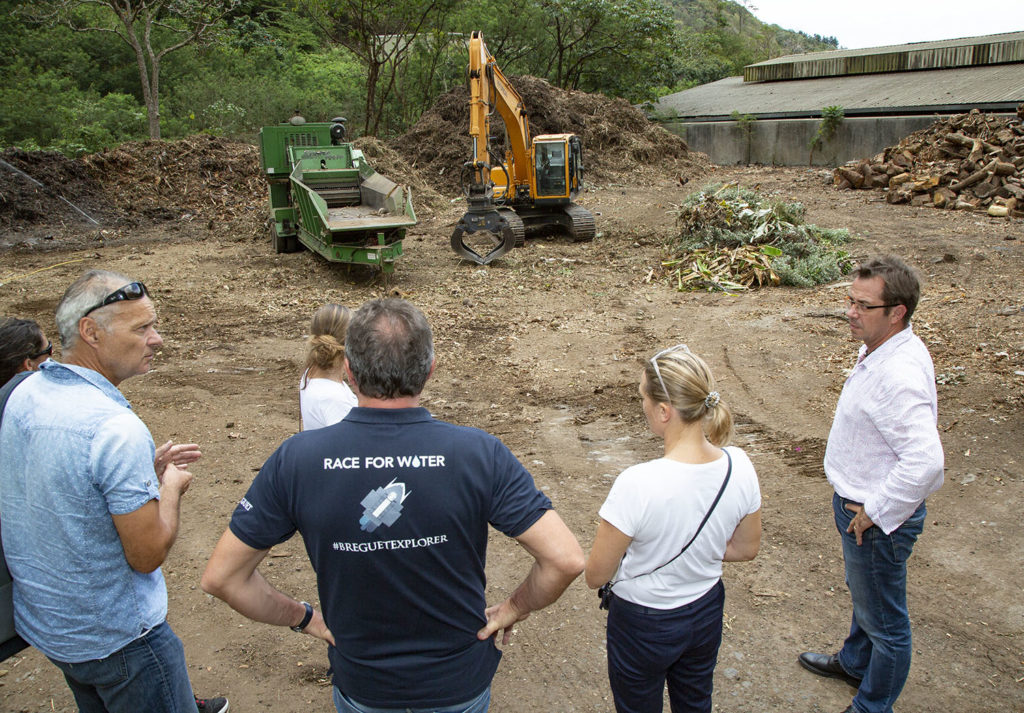
Hospital waste… In the form of bags of blood, syringes or dressings, I am transported in special bins to the treatment centre operated by Technival. Inserted into a crusher, I am crushed down into small fragments before being passed through a microwave tube where all the viruses and other bacteria are removed… I come out in fragments in a big vat at which point I’m considered to be non-contaminated household waste.
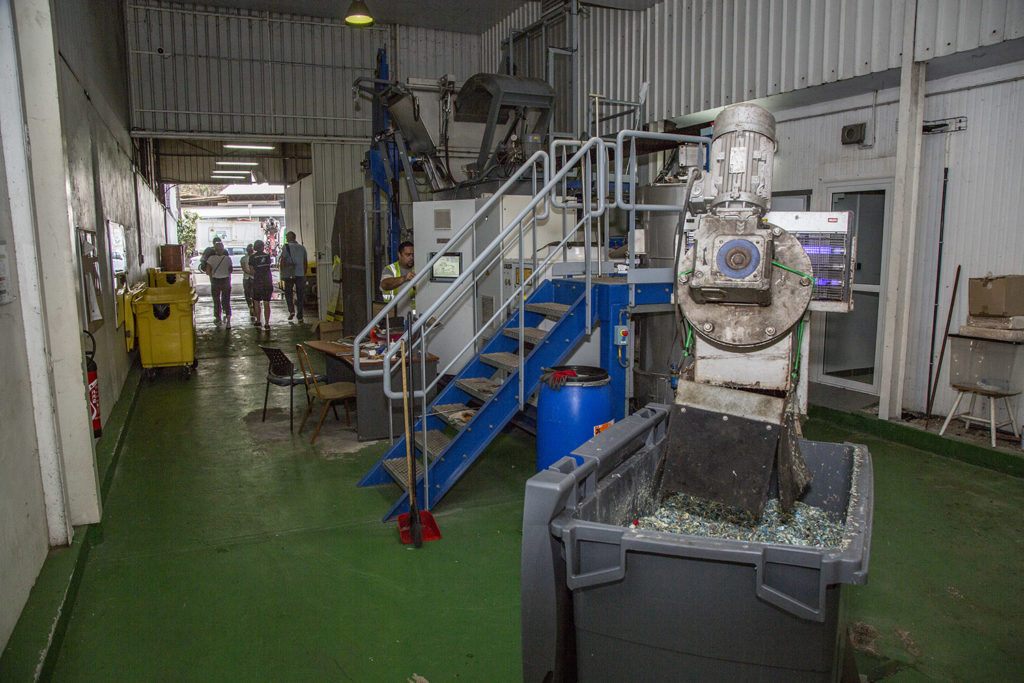
Waste water… Not all the buildings constructed in Papeete are connected to the common waste water treatment network. As a result, there are numerous buildings with their own purification plant. The one that takes care of me works using Bio-Disk technology. Partially submerged in the effluent to be treated, the disks rotate to stir things up and ensure that the bacteria come into contact with the effluent, oxygenate and mix together. During the phase when the disk rotation cycle is submerged, the fixed biomass removes the organic matter in the waste water and then digests it and causes it to degrade. The surface phase of the disk cycle enables the bacteria to breathe. The excess sludge or dead cell mass ends up in purified water, where it is separated and then collected via a clarification stage. I finish up as transparent as water with a level of cleanliness that is equivalent to bathing water.
- Technival
- Technival_décantation
Recyclable household waste… After being sorted at the homes of individuals who put me in the green dustbin with all the recyclable waste, lorries come to pick us up. I then arrive at Enviropol where we’re placed on a large ramp, which takes us along the sorting chain. Various hands sort us out so we’re put into the proper vat for a particular type of waste (cardboard, magazines, plastic bottles, hard plastic packaging, aluminium, iron, etc.). The vats are each emptied in turn, compacted down and sent overseas to be sold on the international recycling market.
If I’m lucky enough to get the chance to live another life and be useful again, it’s because I’m located in towns which have organised the selective sorting collection that is essential to the recycling of waste and that the population is playing the game. Unfortunately, too many of my fellow pieces of waste don’t have this opportunity. If they’re not sorted, they end up buried in a technical landfill centre or, worse still, in a dumping ground without such a system being put in place to ensure that the said waste doesn’t pollute the subsoil and the oceans. Some are even fly-tipped in the countryside putting an entire ecosystem in danger.
All this requires funding for sure, but most important is the willingness to effect change of those who have the power to make decisions… A word to the wise!
The Foundation’s teams would like to offer their sincere thanks for the fantastic welcome they’ve received and the candour of the managers of the companies who opened their doors to us, namely TSP (waste collection), Technival (recovery of green waste) and Enviropol (treatment work).
